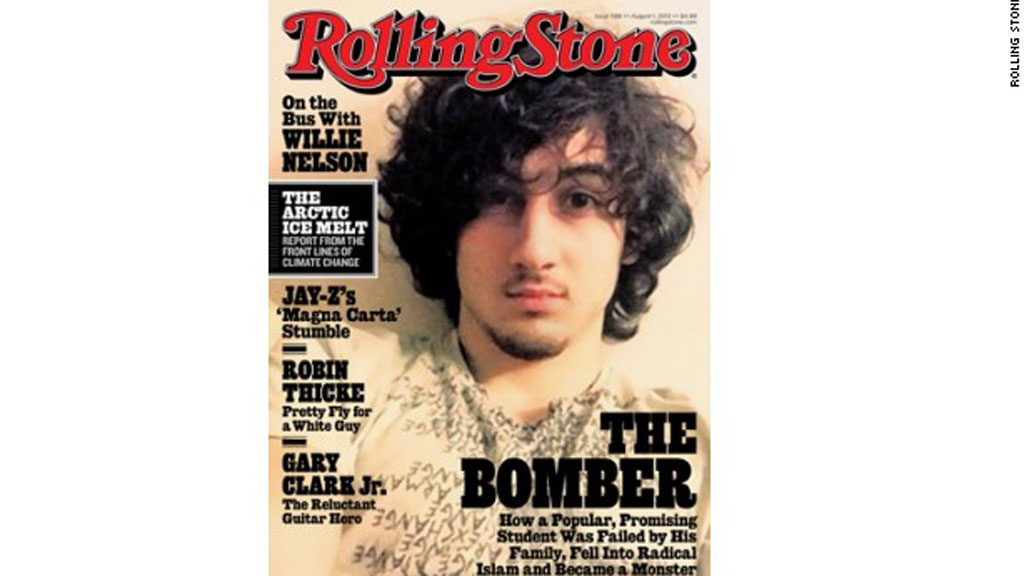Outrage over Rolling Stone’s Boston bomb suspect cover
The cover of the latest Rolling Stone magazine, which features Boston bombing suspect Dzokhar Tsarnaev, has caused a storm of outrage. Is it glamourising his alleged crime?

There has been widespread outrage over the magazine’s decision to put the 19-year-old bombing suspect on this week’s cover, prompting the pharmacy chain CVS to pull the issue from its shelves.
Rolling Stone normally features celebrities and pop stars, and the mayor of Boston has described the image of Tsarnaev as a “total disgrace”. The teenager is accused of planting the bombs which killed three people and left 264 injured, in America’s worst mass killing since September 11, 2001.
As well as a furious reaction in Boston, the former White House national security council spokesman Tommy Vietor tweeted his concern:
“A disaffected US kid could see this and think terrorists are afforded rock star status”.
Vietor, who comes from Boston, said later that the city was “stronger and more resilient than these bombers, and this cover is not going to change it”.
Others have defended the magazine: Erik Wemple in the Washington Post, calling it good journalism, and suggesting the image made Tsarnaev look “even more menacing”.
But on social media sites like Facebook and Twitter, the criticism was overwhelming.
90% of TODAY viewers believe the @RollingStone cover featuring the #BostonBombing suspect goes too far #WhatTrendingTODAY
— TODAY (@todayshow) July 17, 2013
The magazine’s Facebook page attracted thousands of comments, almost all of them condemning the cover photograph. Announcing that it would not be stocking the issue, CVS said it had a strong presence in Boston:
“We believe this is the right decision out of respect for the victims of the attack and their loved ones”, it said a statement.
Rolling Stone’s editors added a statement to the story on their own website, declaring: “Our hearts go out to the victims of the Boston marathon bombing, and our thoughts are always with them and their families.”
They described their cover story as “within the traditions of journalism and Rolling Stone’s long-standing commitment to serious and thoughtful coverage of the most important political and cultural issues of our day.”
The fact that the bombing suspect was young and reflected the age of many of their readers, they said, made it still more important to examine the issue in depth.
Tsarnaev appeared in court last week, where he denied thirty charges, including using a weapon of mass destruction to kill.
His older brother died during a shootout with police after the attack in April, and Zhokhar was found the next day, hiding inside a boat, after a massive manhunt. The authorites allege that the two brothers orchestrated the attack, hijacked a car and killed a police officer while they were on the run.
As for precedent, one journalist tweeted a gentle reminder:
Anyone remember this Rolling Stone cover? http://t.co/LADcBcJIdJ
— Evan Hill (@evanchill) July 17, 2013